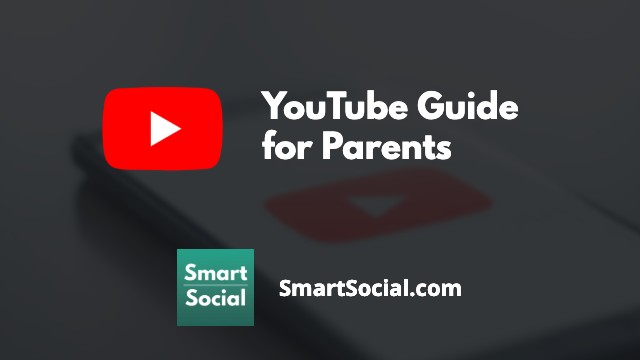Building Your College Admission Resume This Summer
Green Zone App
(Click here to learn more)
Dangerous Social media challenge
(Click here to learn more)
Red Zone App
(Click here to learn more)
Gray Zone App
(Click here to learn more)
Today we’re talking about college admission resumes with Dr. Aviva Legatt, who is a college application coach, Penn faculty member, and past Senior Associate Director of Special Programs and Admissions at The Wharton School. Amber Chitty, who is an internship expert at California State University, Fullerton. Rafe Gomez, owner of VC Inc. Marketing, a provider of sales support content creation services to organizations around the world. And Neha Gupta who is a nationally recognized Author, Speaker, and Getting Students Into The College of their Dreams at College Shortcuts.
What can we start doing really early on to make sure that we put our best foot forward with our kids?
In terms of building a college admission resume, I think the most important thing to remember is to just get started. Think about the things that they have achieved up to this point, the things they want to get involved with, and just jot down anything that might be relevant. Get all the experience out there and then start cutting it back to that ideal one-page resume with the most relevant things. –Amber Chitty, California State University, Fullerton
Students are so busy these days and they have so many activities going on that it can be hard to remember what someone does a couple days later let alone six months later. My recommendation is that students track their activities and events on a Google spreadsheet or Google Doc, Word file, whatever kind of documentation makes sense to you. This way when you go to create that college admission resume, you have everything that you need. Let's say you go to a pre-college program for the summer, you want to find out details about exclusivity. If you can get the information on selectivity on the spot, then you can record that down and add it to your file to use later. –Dr. Aviva Legatt, The Wharton School
WIIFM stands for "What is in it for me?" is a beautiful law of sales that is applicable to college students. When you are presenting your product or service to any prospective buyer, you can't be presenting information that is about the features. The only thing that a prospect cares about is the benefit that they will get. What is in it for me (as the prospect)? When you are applying to colleges, you are selling your ability to present yourself as a solution or a perfect fit for that college. It's not about why you are so awesome, but it's all about why you are so awesome for that college. You need to focus on the benefits that you can deliver rather than the awesomeness of yourself. –Rafe Gomez, VC Inc. Marketing
We need to make sure that when students are looking at their resume, that they are seeing opportunities in their local area and possibly nationally that relate to what they want to study. We see a lot of students that say, "I just don't know what I want to do." Well, if that is the case then pick something and go try it out because that is much more effective in the application process than saying, "Well, I just stayed at home and I worked at my local ice cream shop." Make sure that it's quality and not just quantity. –Neha Gupta, College Shortcut
What are some college admission resume blunders? Things that you would tell parents to avoid?
What I noticed many times on the admissions committee that was a really big challenge for us was the context of a lot of the student's activities and experiences was missing. If someone says they are on the debate team and they went to five tournaments, we don't know what the level of the tournaments was or what role the student had on the team. It's really important to dig in deeply into these experiences and reflect on the day-to-day of what you are actually doing. You can do this in collaboration with your peers, with teachers, etc. Someone who is reading your file, doesn’t know you and can’t ask you a follow-up question. –Dr. Aviva Legatt, The Wharton School
Students often use too much of a passive voice. No matter what your experience is, you should always be able to find transferrable skills that will apply to whatever area you are hoping to go into. For example, a high school student might have a job in food service because that is pretty common. Instead of listing out the basic job experience, personalize it and list what you did where you went above and beyond. –Amber Chitty, California State University, Fullerton
Students and parents often think that the more that they throw at someone, the better they will come off. Everything needs to be united by a value proposition. If you are a student, you need to think about what is that thing that sums you up and positions you as having an advantage over everyone else. Rather than filling your college admission resume with achievement after achievement, choose the ones that speak the most to the truth and validation that you are in fact the person that they want. –Rafe Gomez, VC Inc. Marketing
Students are writing four or five page resumes, double columns, incorrect margins, and there are so many mistakes being made. Even if a student has a 35 on the ACT and a 4.0 and they have done all of these activities, it might not come across as well as it should. The average college admissions director is not spending thirty minutes to review a college admission resume. Format is important. –Neha Gupta, College Shortcut
Protect your family and enter for a chance to win cool prizes
Become a member or log in to learn more on this topic
Protect your family and enter for a chance to win cool prizes

., start learning from this page to earn points!*
Hello, I'm Josh, the founder of SmartSocial.com.
Don't leave this page until you fill out our feedback form that will appear after you learn from the resources...
Here are some of the latest resources at SmartSocial.com
Become a Very Informed Parent (VIP) to get our social media suggestions in your email every Tuesday & Thursday.



Hello, I'm Josh, the founder of SmartSocial.com. Protect your family by taking my 1 minute quiz
This quiz will help you understand how safe your family is


Schools & Districts: Partner with us to protect your community online
Our remote presentations (and website) teach over a million parents and students each year how to be safe so they can shine online. We teach students how their accounts can be used to create a portfolio of positive accomplishments that impress colleges and employers.


Join Our Smart Social Podcast
each week on iTunes
With over 500 episodes, Josh Ochs interviews psychologists, therapists, counselors, teachers, and parents while showing you how to navigate social media to someday shine online.
Listen on:



.jpg)

.jpg)

_.jpg)
.png)